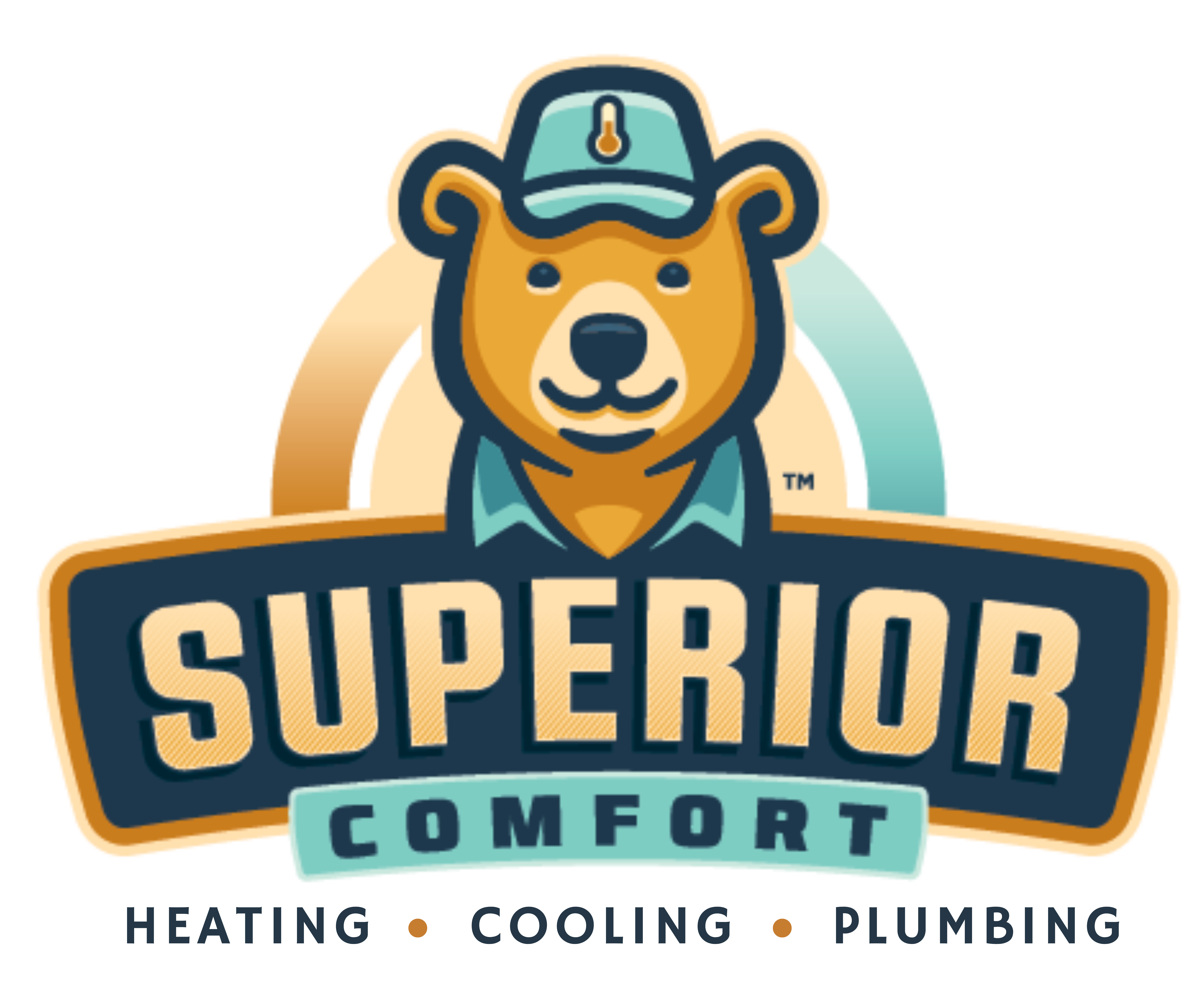As you prepare for the colder months, consider regular heating system safety checks to safeguard your home. During the inspections, our technicians inspect your system’s safety controls to ensure they’re functioning properly.
These inspections go beyond ensuring that equipment runs smoothly; they serve as your first line of defense against potential hazards such as carbon monoxide leaks and fire risks. Keeping your systems in optimal condition protects your investments and the well-being of your family. These safety checks contribute to energy efficiency and can lead to lower repair costs for your home’s heating system in the long run.
This guide emphasizes the benefits of routine heating system safety checks.
Let’s get started!
1. Heating System Safety Checks Prevent Carbon Monoxide Leaks
During a safety check, a technician can identify the risk for carbon monoxide leaks.
Carbon monoxide is a silent threat—odorless, colorless, and potentially deadly. To combat this, our technician may recommend installing carbon monoxide detectors throughout your home. These devices serve as your first line of defense, alerting you to any dangerous build-up before it becomes a significant risk. You should place them near sleeping areas and on every level of the home to ensure constant protection.
Additionally, proper ventilation in your home can help disperse any carbon monoxide that may accumulate from sources like gas appliances or furnaces. Our inspectors check that your vents, chimneys, and flues aren’t obstructed, allowing gases to escape as they should.

2. Inspections Reduce Fire Hazards
Ensure your heating equipment is regularly inspected and serviced by professionals to prevent fire hazards. A safety check helps identify potential issues like faulty wiring or clogged components, common fire hazards.
HVAC safety inspections are crucial for preventing fire hazards for several reasons:
- Electrical Checks: Inspectors look for any faulty wiring, frayed cords, or malfunctioning electrical components within the HVAC system. Electrical issues are a common cause of fires, so ensuring everything is correctly wired and functioning can prevent electrical fires.
- Ventilation Verification: Proper ventilation prevents overheating and reduces the risk of fires. Inspections ensure that air flows freely through the system, which helps to avoid the accumulation of heat and potential ignition of flammable materials.
- Fuel Line and Connection Inspection: For systems that use gas or oil, it’s vital to check the fuel lines and connections for leaks or damage. A fuel leak can lead to dangerous accumulations of gas, posing a significant fire risk.
- Heating Element and Burners: Inspectors check the burners and heating elements for proper operation and cleanliness. Build-up of dust or debris can catch fire when exposed to high temperatures.
3. Heating Unit Safety Checks Can Improve Energy Efficiency
Regular safety checks optimize fuel consumption and minimize heat loss. Furthermore, ensuring effective insulation helps retain heat where it’s needed most, maintaining comfort while reducing utility bills. Prioritizing these checks can significantly enhance your heating system’s performance and overall efficiency.
Let’s explore further how heating system safety checks can improve energy efficiency:
- Cleaning and Maintenance: During safety inspections, the heating system is cleaned of any debris and dirt that can hinder its performance. A cleaner system operates more efficiently as it requires less energy to heat the home.
- Identifying and Fixing Leaks: Inspections often uncover leaks in ductwork or around the heating unit itself. Repairing these leaks ensures that heat is not wasted, improving the efficiency of the system and reducing the energy required to maintain comfortable temperatures.
- Ensuring Proper Airflow: Inspectors check for any blockages or issues in vents and filters that can restrict airflow. Improved airflow allows the system to distribute heat more evenly and operate more efficiently, reducing the need for the system to run longer or work harder.
- Calibration of Thermostats: During a safety check, thermostats are often tested and recalibrated if necessary. A properly calibrated thermostat ensures accurate temperature settings, which prevents the system from running more than needed, thereby saving energy.
- Checking System Components: Inspectors check the condition of critical components like heat exchangers, burners, and blowers. Well-maintained components are more efficient and can handle the heating load with less energy.
- Upgrade Recommendations: Safety inspections can also lead to recommendations for upgrades or replacements of outdated or inefficient parts. Upgrading to more energy-efficient parts can significantly reduce the energy consumption of the heating system.
4. Safety Checks Extend Heating Equipment Lifespan
Establishing a consistent inspection and maintenance schedule guarantees that your system operate efficiently and safely. By doing so, you can catch potential issues early and make necessary equipment upgrades before they become major problems.
Here’s exactly how safety checks can significantly extend the lifespan of your heating system:
- Regular Maintenance: Safety checks involve routine maintenance, such as cleaning and replacing filters, lubricating moving parts, and checking fluid levels. This maintenance reduces wear and tear, ensuring that the system operates smoothly and reduces the risk of breakdowns.
- Early Detection of Issues: During safety inspections, potential problems can be identified early before they develop into serious issues. Fixing small issues promptly, like replacing worn belts or repairing minor leaks, can prevent them from causing major damage to the system, thereby extending its lifespan.
- Optimal Performance: Safety checks ensure that each component of the heating system is functioning correctly. This not only enhances performance but also ensures that the system isn’t overworking, which can lead to premature wear and breakdowns.
- Preventing Overheating: By cleaning and checking the system, inspections help prevent overheating, which is a common cause of significant damage in heating systems. Overheating can strain components and lead to failures, so maintaining an optimal operating temperature is crucial for longevity.
- Ensuring Correct Installation and Settings: Safety inspections verify that all components are installed correctly and that system settings are optimized for performance. Incorrect installation or settings can lead to inefficient operation and extra strain on the system, reducing its lifespan.
- Updating System Components: Inspections often reveal if parts of the system are outdated or inefficient. Replacing these components not only improves efficiency but also reduces the strain on the rest of the system, allowing it to last longer.
- Compliance with Manufacturer’s Recommendations: Many heating systems have specific maintenance guidelines recommended by the manufacturer. Safety checks ensure these guidelines are followed, which is often necessary to keep warranties valid and ensure the longest possible service life.
5. They Improve Indoor Air Quality
Heating system inspections significantly improve indoor air quality in a few ways. First, the process includes replacing or cleaning air filters. Air filters help with capturing allergens like pollen and dust, to prevent their circulation within your home. Inspections also assess and clean ductwork to remove mold, dust, and debris, ensuring these pollutants do not enter living spaces.
Additionally, the inspection involves detecting and sealing leaks in ductwork. This step prevents outdoor pollutants and particles from unconditioned spaces like attics or basements from entering and circulating through the system. Proper functioning of the ventilation system is confirmed to ensure efficient exchange of indoor and outdoor air, which is key to maintaining optimal air quality.
For heating systems that use combustion, such as furnaces, inspections ensure proper venting to the outside, crucial for preventing indoor pollution from combustion byproducts like carbon monoxide. The inspection might also involve calibrating humidifiers and dehumidifiers to maintain appropriate humidity levels, enhancing comfort and reducing allergens.
6. Maintain Your Manufacturer Warranty with Regular Servicing
A manufacturer’s warranty safeguards your heating system, guaranteeing any defects or issues are addressed without extra cost. To maintain this valuable warranty coverage, adhere to the manufacturer’s requirements, which often include regular maintenance and timely service checks. These routine inspections keep your system running efficiently and prevent costly repairs that could arise if a problem goes unchecked.
One key aspect of maintaining warranty coverage is keeping detailed service documentation. This includes records of all maintenance and repairs performed on your heating system. By doing so, you can provide proof that you’ve met the necessary conditions outlined by the manufacturer, should any disputes arise. Without proper documentation, you risk voiding your warranty, leaving you responsible for potentially expensive repairs.
Scheduling regular safety checks on your heating system and keeping thorough records guarantees the longevity of your warranty. This protects your investment and gives you peace of mind, knowing that you’re covered should any unexpected issues occur with your heating system.
Schedule a Safety Check to Maintain the Efficiency of Your Heating System
As we’ve seen, regular inspections maintain the safety and efficiency of your heating system. Before the chill of winter sets in, you should confirm everything is functioning at its best to avoid unexpected breakdowns. Similarly, as spring approaches, check for any wear and tear that might’ve occurred over the colder months.
Our HVAC professionals at Superior Comfort Heating and Cooling are well-experienced in conducting comprehensive safety inspections in the Michigan area. Contact us at at (734) 929-9820 for a service in Flat Rock, MI.
Frequently Asked Questions
How Often Should I Replace the Filters in My Heating System?
You should replace filters every 1-3 months, depending on filter types. Proper filter maintenance guarantees clean air and peak heating performance.
What Are the Signs That My Heating System Needs Immediate Attention?
You need to pay attention if your heating system makes unusual noises or causes fluctuating temperatures. Check for strange odors, poor airflow, or an unresponsive thermostat. These signs mean it’s time for immediate professional help!
Are There Any DIY Maintenance Tips for Heating Systems?
You can start by performing ventilation checks to guarantee clear airflow. Calibrate the thermostat for accurate temperature readings. Regularly replace air filters and inspect for unusual noises or odors. DIY maintenance keeps everything running smoothly!
How Do I Choose a Reliable HVAC Technician for Inspections?
When selecting an HVAC technician, verify their credentials and read technician reviews to confirm reliability. Trustworthy feedback is key, so check online sources and ask for recommendations from neighbors. Superior Comfort Heating and Cooling has a more than 900 positive Google reviews.
What Should I Do if I Smell Gas Near My Heating System?
If you smell gas near your heating system, leave the area immediately and avoid sparks or flames. You should call emergency services and follow gas leak procedures for your safety. Quick emergency response is essential. Stay safe!
 SEE OUR SPECIALS
SEE OUR SPECIALS FINANCING
FINANCING
 SCHEDULE A SERVICE
SCHEDULE A SERVICE

 CALL 734-818-7141
CALL 734-818-7141